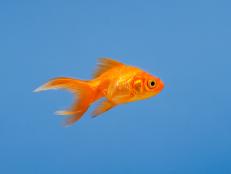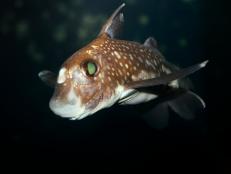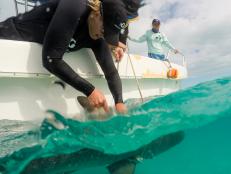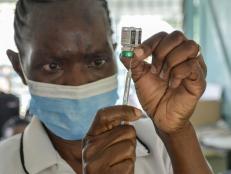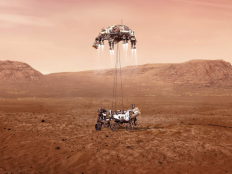All Science Articles
Showing 46 - 60 of 341 results
Neuroprosthetic Sensory Devices are Reconnecting People to the World
Sensory loss has a profound effect on millions of people’s everyday lives. Sight, hearing, touch, smell, and taste can all be affected, diminishing their experience of the world. But now, thanks to neuroprosthetic technology we can tap into nerve and brain function, and rewire these lost connections.
Airship Renaissance is Pushing Balloon Technology to the Limits
Airships seem like technology from a bygone era. But when a group of British scientists took to the skies above Florida in a Skyship 600, it could have been as champions of a new age in lighter-than-air transport. Drifting among the clouds, it showed there was a place for airships in the 21st century.
Can You Teach a Goldfish to Drive?
A new experiment suggests these household fish actually make good drivers.
Doing Renewables Right
Having a “net-zero future” – where the world isn’t emitting excess carbon dioxide – can seem like a far-off pipe dream.With sea levels still rising, wildfires becoming more and more frequent – alongside other extreme weather like floods and storms – and biodiversity rapidly dwindling, it’s imperative we focus on expanding renewable energy across the world, increasing energy sources to help mitigate the impact that fossil fuels have on the climate.
Rare Baby Ghost Shark Discovered Off New Zealand Coast
Scientists hope the ‘very rare’ finding will fill in research gaps about the elusive species.
Inspiring Women in Science
Dr. Lisa Hoopes, Director of Research and Nutrition at Georgia Aquarium shares her experiences in the field and what International Women and Girls in Science Day means to her.
World's First Malaria Vaccine Offers Hope to Millions
Tens of thousands of lives could be saved each year from sickness and death caused by malaria following the World Health Organization (WHO) approval of a first-ever vaccine. Scientists have recommended the RTS,S vaccine for children in sub-Saharan Africa and other high-risk areas to prevent one of the world’s oldest and deadliest infectious diseases.
Thousands of Bacterial Enzymes Hold the Key to Plastic Pollution Clean-up
Scientists suggest that people ingest at least 50,000 plastic particles a year. Health issues linked to the way plastic chemicals act on the body include cancer and infertility. And investigations show that we are breathing in 100 times more microplastics in our homes than was previously thought. So what can help tackle plastic pollution?
Carbon Conversion Turns Dangerous Greenhouse Gas into Fuel
Carbon dioxide (CO2) emissions are a grave environmental problem. This persistent greenhouse gas produced by fossil fuels is relentlessly warming Earth’s climate. Technologies to reduce its levels and climate impact concern us all. So can breakthroughs that use CO2 to create new fuels help solve the problem? Potentially, yes.
There's a Biodiversity Crisis--Here's What You Need to Know
Despite the world slowing down during the pandemic and studies hailing the slowdown of pollution and positive benefits on the environment, there’s one thing that continued full throttle: the globe’s biodiversity crisis.
Sustainable Aviation Will Reduce Jet Fuel Emissions to Zero
Zero carbon flights are the ultimate goal for an airline industry that relies heavily on fossil fuels. Aviation pumps out at least 2.5 percent of global carbon dioxide (CO2) emissions today. Sustainable aviation fuels will shrink the industry’s climate risk by 2030, but zero-emissions fuels like hydrogen are beginning to emerge.
NASA's Biggest 2021 Milestones
From making history on Mars to supersonic aircraft, NASA continues to astound us with science from this past year.
Laser Cooked 3D-Printed Meals are the Future of Food
Whatever your tastes are it is highly unlikely that many of you are using 3D printers to create your favorite meals. Still, anyone interested in the future of food can find technologists printing out snacks, from steaks to cakes, at the push of a button. Now laser cooking has arrived and it is adding an entirely new layer of gourmet taste.
Nanodiamond Sparkles as Miracle Material of Future Technology
Invisible to the naked eye and made from one of Earth’s most abundant elements, carbon, the wonder-material nanodiamond is an impressive creation. These tiny particles of diamond measure billionths of a meter in size, but their impact on future science is likely to be colossal.
Raining Sulfur in the Biblical City of Sodom Could Be Explained by an Impact Event
About 3,600 years ago, Tall el-Hammam was a bustling city-state in the Jordan Valley near the Dead Sea. It thrived for 1,500 years — until a devastating event destroyed the city and contaminated the surrounding farmland with salt. What had once been an extremely fertile area became completely barren overnight. Humans left the region for at least 500 years afterward, and researchers have struggled to explain what happened.














